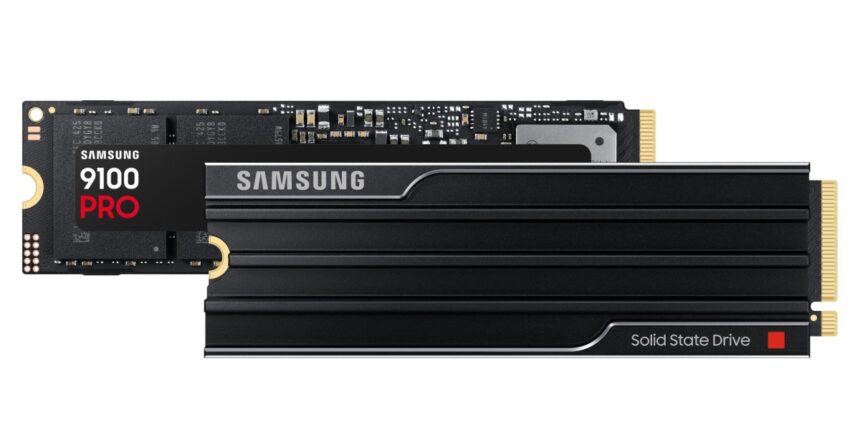PlayStation 5 and PS5 Professional house owners, in addition to most PC customers, don’t have to get labored up about PCIe 5.0 SSDs. Positive, they boast a lot quicker marketed speeds than PS5-ready PCIe 4.0 fashions, that are moderately inexpensive nowadays — 2 TB prices round $150— and are available in several storage configurations and kinds. However, most mainstream gaming gadgets and PCs aren’t constructed to reap the benefits of PCIe 5.0 speeds. Those that are appropriate haven’t given me sufficient causes to get jealous … but.
I say this as somebody who has the brand new Samsung 9100 Professional in-hand (out as we speak), however can’t really take full benefit of its ludicrous speeds. My newly-rebuilt PC helps PCIe 5.0 SSDs, however there are different bottlenecks in my system (such because the PCIe 3.0 SSDs I take advantage of for recreation installs and the OS) that would supply an imperfect view of the 9100 Professional’s efficiency. Whereas I like to seek out excuses to improve my PC, testing movies I’ve seen point out that the PCIe 5.0 storage isn’t price overhauling my system for.
As seen from this video from the YouTube channel Testing Video games that exhibits PC recreation loading occasions with PCIe 3.0, 4.0, and 5.0 SSDs subsequent to one another, the outcomes aren’t a night-and-day distinction within the newer tech’s favor. We’re speaking one to a few seconds by way of loading velocity, relying on the sport (typically extra, typically much less). This 2024 video from Linus Tech Suggestions exhibits eventualities by which PCIe 5.0 is merely on par with PCIe 4.0 in PCs (and in some uncommon instances, barely behind). Regardless, it’s vital to notice that neither of the testing movies above embrace Samsung’s new 9100 Professional, so it’s not honest to imagine its efficiency with out having put it via its paces. I stay up for seeing if this one modifications the narrative.
To place the 9100 Professional’s velocity enhancements in context, it’s enjoyable to check it to Samsung’s first PCIe 4.0 SSD, the 980 Professional. Samsung’s new 9110 Professional doubles the 980 Professional’s sequential learn velocity (14,800 MB/s vs. 7,000 MB/s) and almost triples its sequential write velocity (13,400 MB/s vs. 5,000 MB/s). Sequential features are good, however since most workloads (and video games) entry information randomly, random learn /write speeds are extra vital to think about. These are improved within the 9100 Professional, too, even when in comparison with the last-gen 990 Professional. The $219.99 (1 TB with heatsink) beginning worth is smart given the velocity will increase, although it’s astronomical in worth in comparison with the 990 Professional, which at the moment prices $179.99 at Amazon for the two TB heatsink mannequin.
It’s unclear as as to whether Samsung is finished making improved variations of PCIe 4.0-based SSDs, for the reason that 990 Professional approached the theoretical velocity restrict. However when you’re questioning whether or not you must get a Samsung 990 Professional or some other competing PCIe 4.0 SSD with comparable learn / write speeds, I’d counsel following your finances.
When you’ve got a big finances, it’s not fully (solely barely) unreasonable to purchase the 9100 Professional when you plan to ultimately improve to a PCIe 5.0 system down the road. This and all PCIe 5.0 SSDs are backwards appropriate in PCIe 4.0 {hardware}, together with the PS5, albeit with slower information switch speeds than marketed. There are tangible advantages to having quicker storage relating to shifting information round (assuming your {hardware} can take full benefit of it), besides, it doesn’t often enhance gameplay as a lot as a brand new graphics card and processor improve can. For those who play on-line multiplayer video games primarily, these gained’t be an excellent showcase of the 9100 Professional’s prowess as you’ll load into the sport on the similar velocity as everybody else.









